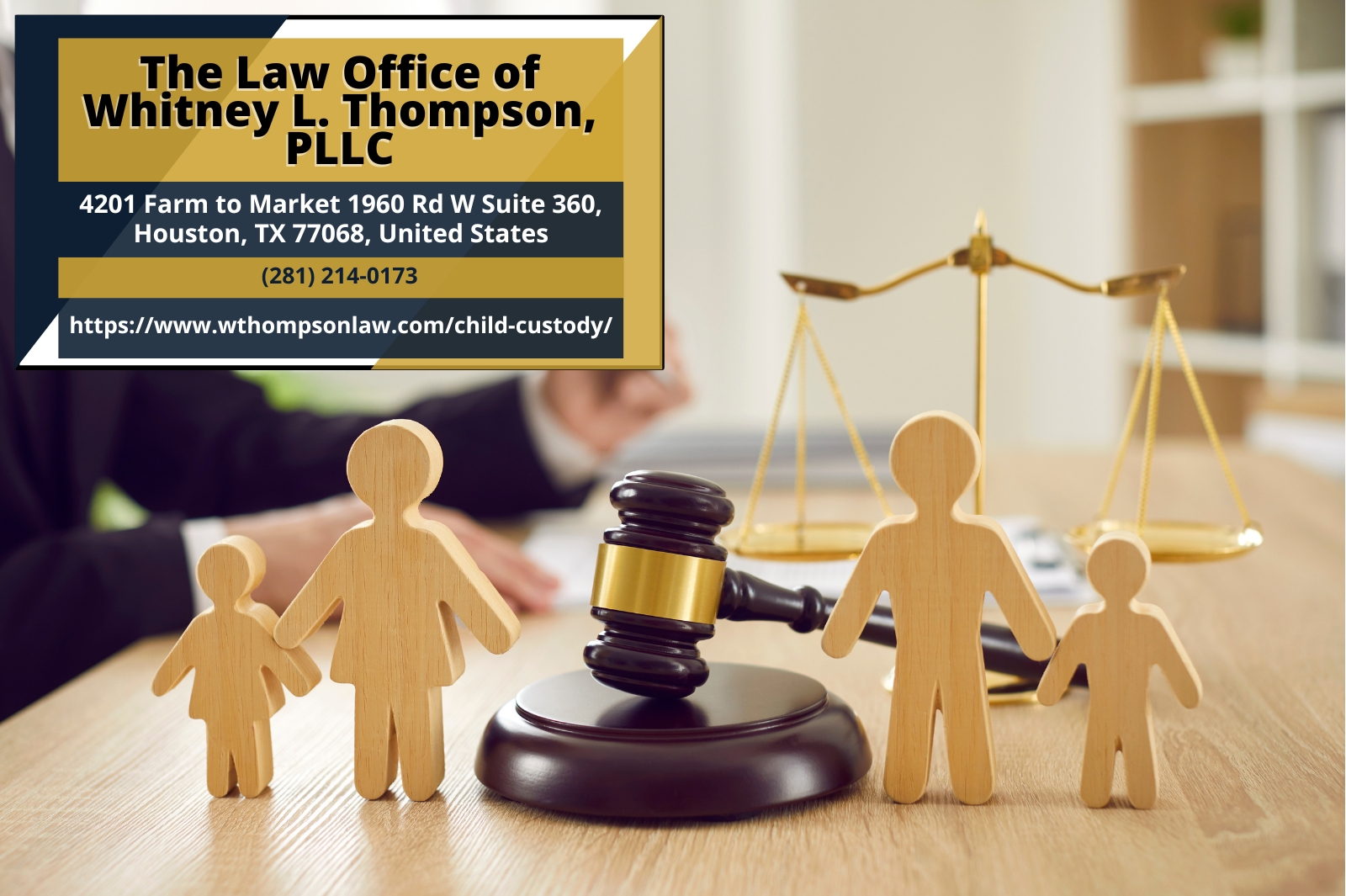Houston child custody lawyer Whitney L. Thompson of The Law Office of Whitney L. Thompson, PLLC, has released an insightful article detailing the nuances of child custody laws in Texas. The article serves as a valuable resource for parents, guardians, and other family members involved in the often emotional and complex process of child custody.
In her article, Houston child custody lawyer Thompson highlights the challenges faced by parents, grandparents, or other family members who step into custody disputes. Whether it involves a divorcing couple, single parents, or complex family dynamics, the article underscores the importance of understanding the legal framework surrounding child custody in Texas.
“Child custody cases can be overwhelming, especially when emotions run high,” Houston child custody lawyer Whitney L. Thompson explains. “It’s important for families to know their legal rights and options in order to make decisions that truly benefit the child.”
Whitney L. Thompson explores the two primary types of conservatorship recognized by Texas law: joint managing conservatorship and sole managing conservatorship. She explains that the state typically presumes joint custody to be in the best interest of the child, allowing both parents to share decision-making responsibilities. However, certain circumstances, such as abuse, neglect, or abandonment, can lead to sole custody being awarded to one parent.
“Texas courts prioritize the best interest of the child above all else,” Thompson writes. “This principle guides every decision, from assigning parental rights and duties to determining visitation schedules. Parents need to prepare thoroughly and present their case effectively to demonstrate what arrangement will best serve their child’s welfare.”
The article provides a detailed breakdown of key legal concepts, including the terminology used in Texas custody cases. In Texas, “custody” is referred to as “conservatorship,” and parents can be named as joint managing conservators or sole managing conservators. Thompson clarifies that while Texas law favors joint custody, the court may adjust or deny this presumption if evidence shows that joint custody would not be in the child’s best interest.
Thompson also touches on the modification of custody orders, a topic that resonates with many parents whose circumstances change over time. She notes that courts require a substantial change in circumstances or a child’s expressed preferences (for children over 12 years old) before modifying custody arrangements.
One of the most enlightening aspects of the article is its discussion of gender neutrality in Texas custody cases. Historically, courts leaned toward awarding custody to mothers, especially of younger children, under the “tender years doctrine.” However, Thompson outlines how Texas law has evolved to ensure custody decisions are made without regard to gender.
“Both mothers and fathers are treated equally in Texas courts,” Thompson says. “The focus is solely on the child's needs and which parent is best suited to meet them.”
In addition to explaining the legal landscape, Thompson offers practical advice for parents involved in custody disputes. She encourages parents to document their involvement in their child’s life, maintain a stable home environment, and create a detailed parenting plan that addresses key aspects such as education, healthcare, and visitation schedules.
For fathers, who may feel at a disadvantage due to lingering societal stereotypes, the article provides specific tips on how to present a strong case for custody. This includes compiling evidence of active parenting, organizing financial records, and demonstrating a commitment to the child’s well-being.
“Preparation is key,” Thompson states. “Parents who come to court with a clear plan and evidence of their involvement in their child’s life can significantly strengthen their case.”
For those facing child custody challenges in Houston, the article underscores the critical importance of understanding the law and seeking the right legal guidance. Custody disputes can be emotionally taxing, but they can also shape a child’s future. Thompson encourages parents and guardians to educate themselves, communicate effectively, and, when necessary, enlist the help of a qualified child custody attorney to guide them through the process.
About The Law Office of Whitney L. Thompson, PLLC:
The Law Office of Whitney L. Thompson, PLLC, is a Houston-based family law firm dedicated to helping families address challenging legal issues with compassion and professionalism. Led by Whitney L. Thompson, the firm handles a wide range of family law matters, including child custody and divorce. Committed to advocating for the best interests of children and families, the firm provides personalized legal solutions tailored to each client’s unique situation.
Embeds:
Youtube Video: https://www.youtube.com/watch?v=Kksnegx_2Dw
GMB: https://www.google.com/maps?cid=9428708165305469162
Email and website
Email: info@wthompsonlaw.com
Website: https://www.wthompsonlaw.com/
Media Contact
Company Name: The Law Office of Whitney L. Thompson, PLLC
Contact Person: Whitney L. Thompson
Email: Send Email
Phone: (281) 214-0173
Address:4201 Farm to Market 1960 Rd W Suite 360
City: Houston
State: Texas 77068
Country: United States
Website: https://www.wthompsonlaw.com/






